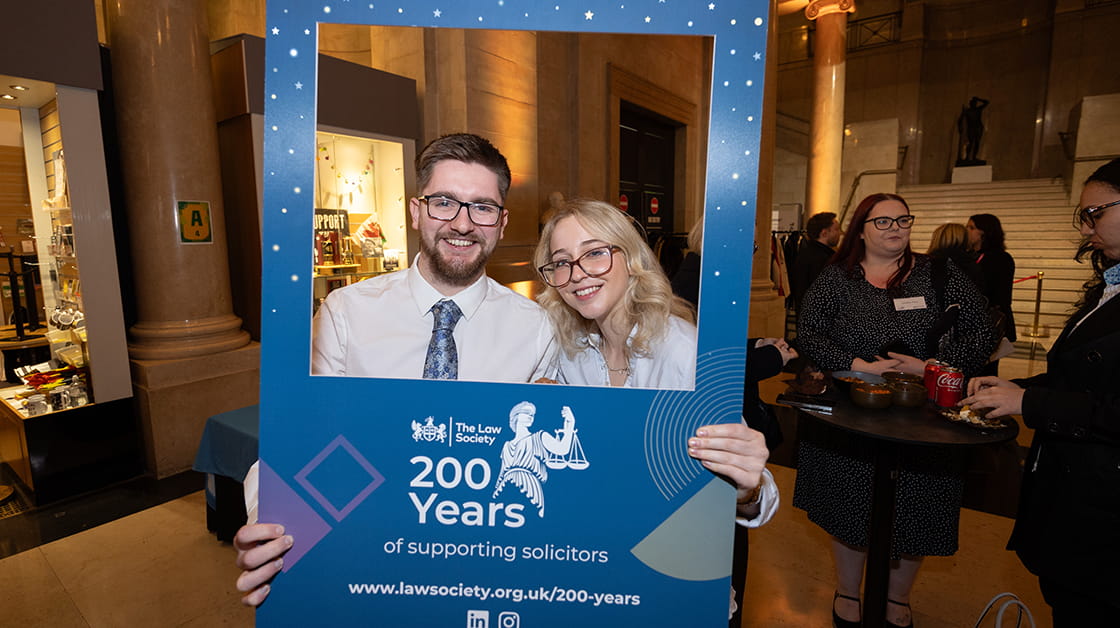Small Firms Network

Content for your commute: on-demand recordings
Stay up to date with the latest developments for small firms and sole practitioners with our series of on-demand event recordings.

Your membership gives you access to expert, practical and time-saving resources. Explore guides, practice notes and tools on issues that directly impact your business.
All resources
- Anti-money laundering (AML) compliance for small firms04 Dec 2023
- Anti-money laundering guidance for the legal sector23 Apr 2025
- Business development for law firms07 Oct 2019
- Client funds21 Apr 2020
- Cyber insurance for law firms03 Aug 2022
- Cybersecurity for solicitors28 Aug 2019
- Dealing with complaints from prospective clients16 Jun 2023
- Engaging clients21 Apr 2020
- Financial abuse28 Jan 2025
- Help for solicitors facing financial difficulty20 Apr 2025
- How to approach Solicitors Qualifying Exam fails: guide for employers09 Sep 2024
- Introduction to lawtech07 Oct 2019
- Introduction to pro bono12 Sep 2024
- Investigation and enforcement: what to expect from the SRA and SDT19 Mar 2024
- Managing and closing files10 Mar 2020
- Meeting the needs of vulnerable clients29 Nov 2022
- Net zero: what solicitors can do28 Oct 2021
- Ownership of documents12 Mar 2020
- Recommended minimum salary for trainee solicitors and SQE candidates30 Jul 2024
- Resources for sole practitioners12 Feb 2020
- Respond to a subject access request (SAR)01 Aug 2019
- Run-off cover31 Jan 2024
- Solicitors Indemnity Fund and post six-year run-off cover03 Oct 2023
- Solicitors Qualifying Examination (SQE)21 Sep 2021
- Sources of complaints03 Jan 2020
- Stress and mental health25 Oct 2022
- Supervision: good practice for remote supervision of junior staff and trainee solicitors29 Jul 2024
- Supporting wellbeing in the workplace: guidance for best practice09 Oct 2019
- Suspicious activity reports31 Mar 2025
- Top-up cover (excess layer) for professional indemnity insurance15 Sep 2023
- UK economic crime regime30 Apr 2024
- What happens if you cannot renew your professional indemnity insurance25 Sep 2020
- Who is regulated under the Money Laundering Regulations 2017?17 Jun 2024
- Working with clients who may lack mental capacity28 Jan 2025
- Working with vulnerable clients case studies05 Jun 2020
- Workplace harassment: guidance for employers18 Oct 2024
- Annual statistics report 202323 Jan 2025
- Fresh challenges but new opportunities, Financial Benchmarking Survey shows20 Mar 2024
- Latest trends in professional indemnity insurance for law firms21 Jul 2023
- Legal needs of individuals in England and Wales report27 Jan 2020
- The results are in: how do solicitors feel about their profession? 06 Apr 2023
- The use of video witnessing wills through lockdown 30 Nov 2021
- How can I protect client information from cyberattacks?09 Dec 2024
- How can my firm use AI to benefit our business?27 Jan 2025
- Is cyber insurance covered by professional indemnity insurance?19 Jul 2023
- I’m a sole practitioner. Do I need to appoint a money laundering officer?28 Jan 2025
- What is an electronic signature?28 Feb 2024
- What is the effect of a section 44B notice from the SRA?28 Jan 2025
- Creating a climate-conscious approach to legal practice28 Oct 2021
- Easy wins and action points for disability inclusion29 Jan 2021
- Economic crime and regulatory compliance directory24 Jun 2024
- Information security when working with chambers14 May 2024
- Money laundering risks and threats17 Jan 2025
- Price and service transparency - how you can comply11 May 2021
- Protection for solicitors against targeted attacks13 Sep 2024
- Race to net zero: tools to support your business28 Oct 2021
- Use the LSA's Carbon Calculator to reduce your firm's emissions20 Nov 2022
- AI and lawtech policy11 Apr 2025
- Artificial intelligence (AI) strategy16 Sep 2024
- Changes to the Legal Ombudsman Scheme Rules30 Apr 2023
- Economic crime levy30 Jan 2025
- Economic growth and legal services27 Feb 2025
- Empowering consumers in the legal services market19 Apr 2022
- Solicitors Qualifying Exam (SQE)23 Jan 2025


Celebrating 200 years of supporting solicitors
Connect with your diverse community, explore our rich history and help shape the next 200 years.

OneAdvanced Legal
OneAdvanced Legal is a supporter of the Small Firms Network and they're inviting members of the network to an exclusive webinar.



Tired of searching for relevant and reliable precedents and commentary?
Save time and resources by letting our expert library team find the most appropriate precedents and guidance for your requirements with our remote enquiry service.

Join the Leadership and Management Section
The Leadership and Management Section is a community designed to help partners, leaders and practice managers excel in what they do.





